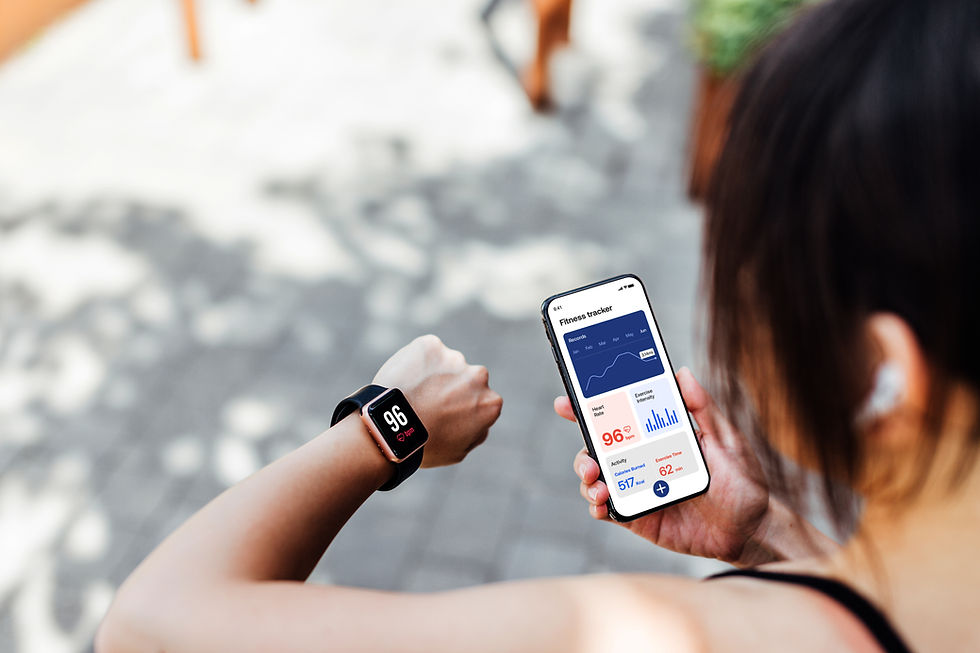Revolutionizing Diabetes Management: How Digital Health is Changing the Game"
- Byon8 Team
- Mar 28, 2023
- 2 min read

Diabetes is a chronic disease that affects millions of people worldwide. Managing diabetes requires continuous monitoring of blood sugar levels, medication adherence, lifestyle modifications, and regular visits to healthcare providers. Fortunately, advancements in technology have made it easier to manage diabetes through digital health solutions.
In this blog, we'll explore how digital health can help people with diabetes manage their condition more effectively.
Continuous Glucose Monitoring (CGM)
CGM systems use sensors to monitor glucose levels in real time and provide instant feedback to patients. CGMs have revolutionized diabetes management by providing patients with accurate glucose data throughout the day, allowing them to make timely decisions about insulin dosing, food intake, and physical activity. Moreover, some CGM systems can send alerts to patients and their healthcare providers when glucose levels fall outside the target range, ensuring early intervention and preventing complications.
Insulin Pumps

Insulin pumps are small devices that deliver insulin continuously, replacing the need for daily injections. Insulin pumps can be programmed to provide insulin based on the patient's glucose levels and meal patterns. The pumps can also track insulin doses and provide data on insulin usage, making it easier for patients to manage their diabetes.
Telemedicine

Telemedicine allows patients to receive healthcare services remotely, without visiting a healthcare provider's office. Telemedicine can help patients manage their diabetes by providing virtual consultations, remote monitoring of glucose levels, and medication adjustments. Telemedicine can also help patients avoid travel time and associated costs, making it easier to receive regular care.
Mobile Applications

Mobile applications such as the Byon8 App can help patients manage their diabetes by tracking their glucose levels, monitoring food intake, and providing medication reminders. Some mobile applications can also analyze glucose data and provide insights into glucose patterns, helping patients make informed decisions about their diabetes management. Mobile applications can also provide social support, connecting patients with other people with diabetes and providing a community for education and support.
Wearable Technology

Wearable technology such as smartwatches and fitness trackers can help patients manage their diabetes by tracking their physical activity, heart rate, and sleep patterns. Some wearable technology can also integrate with CGM systems, providing patients with real-time glucose data and alerts. Wearable technology can also provide motivation and feedback, encouraging patients to make healthy lifestyle choices.
In conclusion, digital health solutions have transformed diabetes management by providing patients with access to real-time data, remote care, and social support. Patients with diabetes can now manage their condition more effectively with the help of continuous glucose monitoring, insulin pumps, telemedicine, mobile applications, and wearable technology.
Digital health has the potential to improve diabetes outcomes and empower patients to take control of their health.



Comments